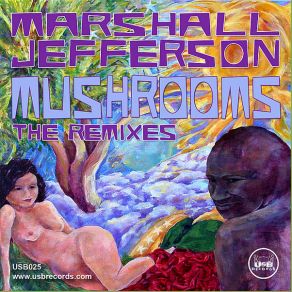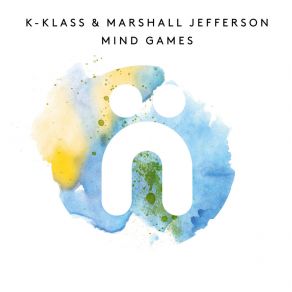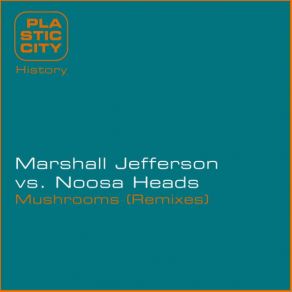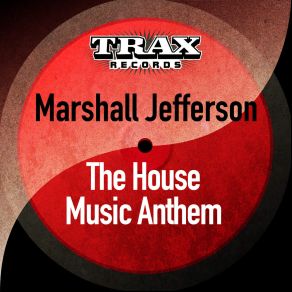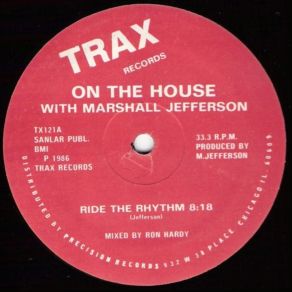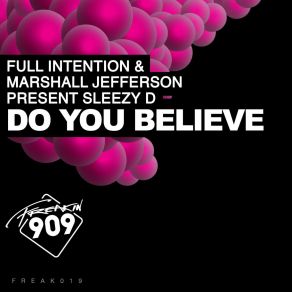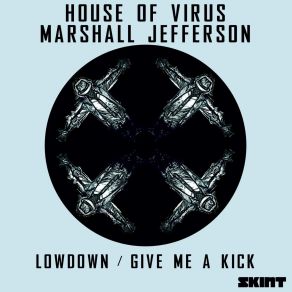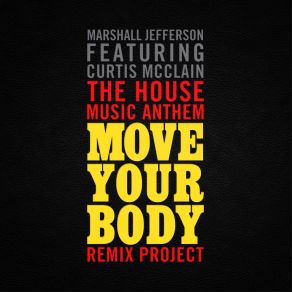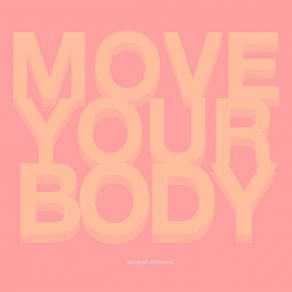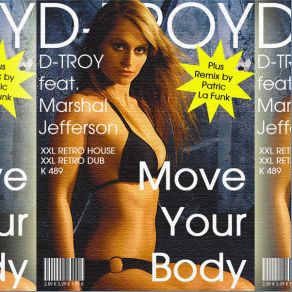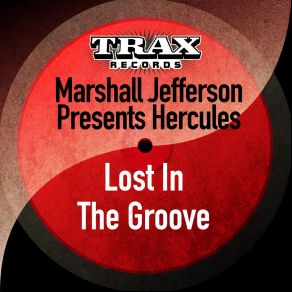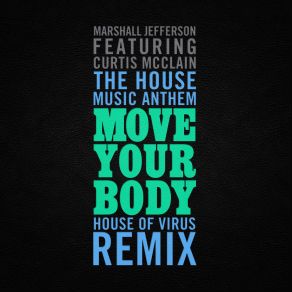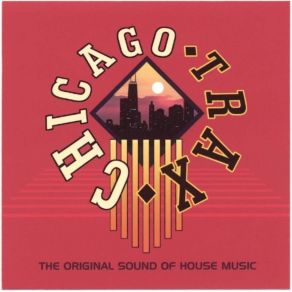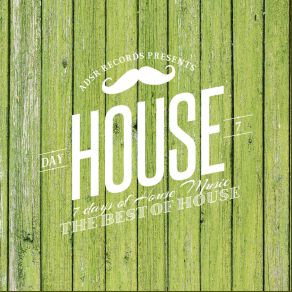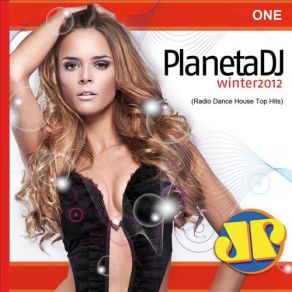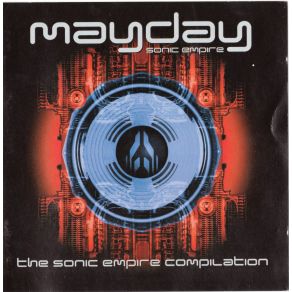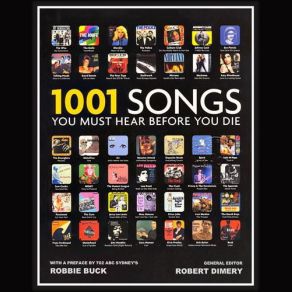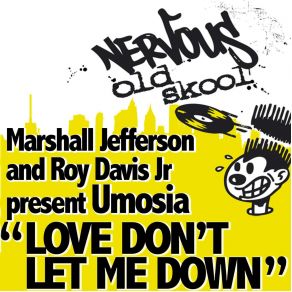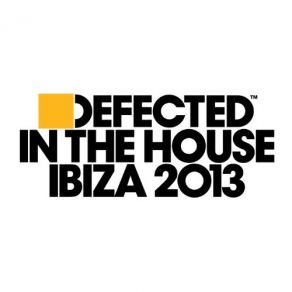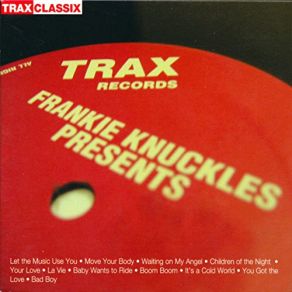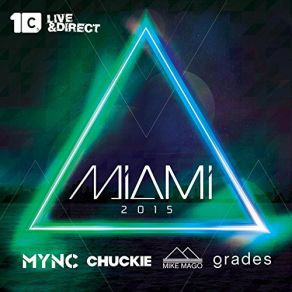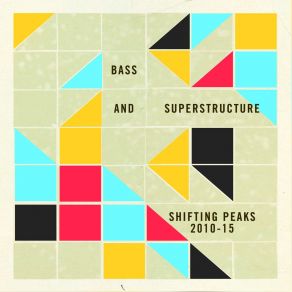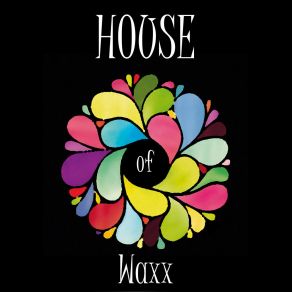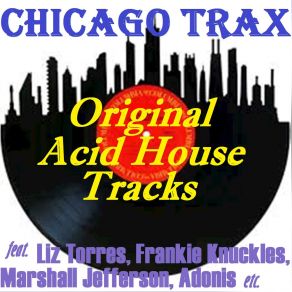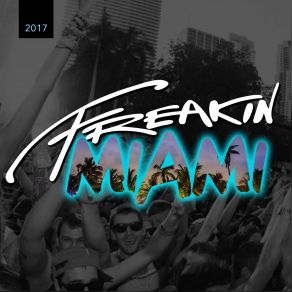Marshall Jefferson
Wikimp3 information about the music of Marshall Jefferson. On our website we have 53 albums and 70 collections of artist Marshall Jefferson. You can find useful information and download songs of this artist. We also know that Marshall Jefferson represents Dancefloor genres.
Biography
[Edit]One of the original innovators in Chicago house, Marshall Jefferson had a hand in several of the music's most influential early tracks. As a solo act, he recorded 1986's "Move Your Body" — subtitled and unanimously acclaimed "The House Music Anthem." Jefferson also helped record Phuture's "Acid Tracks," the first and best acid-house single. Later, amidst a wave of acid-inspired records, he grew tired of the sound and moved into a more spiritual form of music later termed deep house; along with Larry Heard, he became one of its best producers.
Jefferson was born in Chicago in 1959, the son of a police officer and a school teacher. Heavily into hard rock like Black Sabbath and Deep Purple during the '70s, he attended university to study accounting, but left after three years to take a job in the post office. By 1983, friends began taking him to Chicago's Music Box club; after being exposed to Ron Hardy's influential mixing style, Jefferson soon realized that house music had a real feeling to it, unlike the commercial disco sound he was accustomed to hearing on the radio. House artists like Jesse Saunders and Jamie Principle had begun releasing records by that time, and Jefferson felt the need to begin recording as well. He bought a synthesizer/sequencer combo and passed several of his newly recorded tapes on to Ron Hardy. The legendary DJ liked what he heard and began dropping the tracks into his set.
During the two-year period from 1985 to 1986, Marshall Jefferson released half-a-dozen of the biggest club hits in Chicago. His first release, "Go Wild Rhythm Trax," appeared on Virgo Records in 1985. Later that year he produced his friend Sleazy D's "I've Lost Control," and the track became a big club hit. "Move Your Body," another recording first introduced by Hardy, was given a full release on Trax Records in 1986; the single immediately dropped a bomb on Chicago crowds, who soon began acknowledging the track as house music's defining moment.
Less than one year after "Move Your Body" however, Chicago was forced to react to another important milestone, the onset of acid-house. The trio known as Phuture (DJ Pierre, Spanky, and Herb J) had recently recorded some material using the acid squelch of Roland's TB-303 synthesizer, and with Marshall Jefferson's help, they entered the studio to record a full version. Phuture emerged from the studio with "Acid Trax," one of the most influential songs in the history of house. Several months after its release, it had spawned literally hundreds of imitators and answer versions; soon the Chicago house scene had become swamped with tracks soaked in the squelchy reverbs of the TB-303.
Given the lack of variety in the scene, Jefferson quickly tired of acid-house. Instead of continuing with acid, he recorded an atmospheric slice of house inspired by the original vibe he had experienced at the Music Box back in the early '80s. The track, "Open Your Eyes," took its place alongside contemporary productions by Larry Heard, signalled a new feeling in house music, named "deep house" for its level of emotion and organic beauty.
Unlike many Chicago house producers, Jefferson managed to make a good living during the late '80s and early '90s, when house music went global almost overnight and the bottom dropped out of Chicago's fraternal club scene. Several Marshall Jefferson productions not recorded under his own name, such as Hercules' "Lost in the Groove," Jungle Wonz's "The Jungle," and Kevin Irving's "Ride the Rhythm" all became sizeable club hits. Also, he masterminded the career of the preeminent house vocal group Ten City from 1988 through 1992, and began DJing around Europe after being offered several high-profile spots in 1989. Jefferson spent much of the '90s remixing and DJing, but did record under his own name for the 1997 album Day of the Onion.
Title: Clap Your Hands (Everybody Dance) - Single
Artist: Pierre J, Marshall Jefferson
Genre: House, Dancefloor, Dance Pop
Title: House Music - Single
Artist: Pierre J, Marshall Jefferson
Genre: House, Dancefloor, Dance Pop
Title: House Music (Original Pack 2015)
Artist: Fabio Tosti, Marshall Jefferson
Genre: Electronica, Tech House, Hip Hop/R&B, Death Metal
Title: Lock the Doors (True House Stories) - Single
Artist: Marshall Jefferson
Genre: House, Dancefloor, Dance Pop
Title: Lock the Doors (Remix Pack - Part 1) - Single
Artist: Marshall Jefferson
Genre: Electronica, Dancefloor, Dance Pop
Title: Move Your Body (Future House) - Single
Artist: Marshall Jefferson, Tchami
Genre: Electronica, House, Dancefloor, Dance Pop
Title: Lock the Doors (Remixes) - Single
Artist: Marshall Jefferson
Genre: House, Dancefloor, Dance Pop
Title: The House Music Anthem (Move Your Body) [2012 Version] - Single
Artist: Marshall Jefferson
Genre: Electronica, House, Rock, Dancefloor, Dance Pop
Title: It's Just a Feelin (That I Get)
Artist: Marshall Jefferson, Steve " Silk " Hurley, B. Lauren
Genre: Electronica, Dancefloor, Dance Pop
Title: House Music (Is a Sweet Sensation)
Artist: Marshall Jefferson
Genre: House, Dancefloor, Dance Pop
Title: Lock the Doors: Remix Pack, Pt. 1 - Single
Artist: Marshall Jefferson
Genre: House, Dancefloor, Dance Pop
Title: BM Feat. Marshall Jefferson - No Set Beat - Single
Artist: Marshall Jefferson, Bm
Genre: Dancefloor, Dance Pop
Title: Feel Me (feat. Rachael Pearson)
Artist: Marshall Jefferson
Genre: Electronica, Dancefloor, Dance Pop
Title: Party People (Unreleased Mixes) - Single
Artist: Todd Terry, Marshall Jefferson
Genre: House, Dancefloor, Dance Pop
Title: Mushrooms (Remixes, Pt. 2) - Single
Artist: Marshall Jefferson
Genre: House, Dancefloor, Dance Pop
Title: Raindance (feat. Byron Stingily)
Artist: Marshall Jefferson, Ragtyme
Genre: Electronica, Dancefloor, Dance Pop
Title: Mushrooms - Single
Artist: Marshall Jefferson, Noosa Heads
Genre: Electronica, House, Dancefloor, Dance Pop
Title: Mind Games - Single
Artist: Marshall Jefferson
Genre: Electronica, House, Dancefloor, Dance Pop
Title: Everybody Dance (Clap Your Hands)
Artist: Pierre J, Marshall Jefferson
Genre: Electronica, Dancefloor, Dance Pop
Title: Mushrooms (Remixes) [Noosa Heads vs. Marshall Jefferson]
Artist: Marshall Jefferson, Noosa Heads
Genre: Electronica, House, Dancefloor, Dance Pop
Title: Mushrooms Remixes (Maxi-Single)
Artist: Marshall Jefferson
Genre: Electronica, House, Acid House, Tech House, Hip Hop/R&B, Dancefloor, Dance Pop
Title: Music Saved My Life (Marshall Jefferson Remix)
Artist: Marshall Jefferson
Genre: Dancefloor, Dance Pop
Title: The House Music Anthem (Remastered) - Single
Artist: Marshall Jefferson
Genre: Electronica, Rock, Dancefloor, Dance Pop
Title: Move Your Body · The Evolution Of Chicago House
Artist: Marshall Jefferson
Genre: Electronica
Title: Lost In the Groove / Boom Boom (Jerome Hill Versions) - Single
Artist: Marshall Jefferson, The Dancer
Genre: Techno, Dancefloor, Dance Pop
Title: Ride the Rhythm (feat. Kevin Irving & Frankie Knuckles) - Single
Artist: Marshall Jefferson
Genre: Dancefloor, Dance Pop
Title: Do You Believe - Single
Artist: Full Intention, Marshall Jefferson, Sleezy D
Genre: House, Dancefloor, Dance Pop
Title: Believe in Love (feat. Soliaris)
Artist: Marshall Jefferson, House Of Virus
Genre: House, Dancefloor, Dance Pop
Title: Believe in Love (feat. Soliaris) [The Radio Mixes] - EP
Artist: Marshall Jefferson, House Of Virus
Genre: House, Dancefloor, Dance Pop
Title: Believe in Love - The Radio Mixes (feat. Soliaris)
Artist: Marshall Jefferson, House Of Virus
Genre: House, Dancefloor, Dance Pop
Title: Lowdown / Give Me a Kick
Artist: Marshall Jefferson, House Of Virus
Genre: House, Dancefloor, Dance Pop
Title: Marshall Jefferson/Les Parrains De La House
Artist: Marshall Jefferson
Genre: Electronica, House, Dancefloor, Dance Pop
Title: Move Your Body (1986 to Present)
Artist: Marshall Jefferson, Curtis Mcclain
Genre: House, Dancefloor, Dance Pop
Title: 2 How Can I
Artist: Marshall Jefferson, Robert Owens, Gareth Whitehead
Genre: House, Dancefloor, Dance Pop
Title: Kiss the Dragon (feat. K Alexi) - EP
Artist: Marshall Jefferson, Jay C
Genre: House, Dancefloor, Dance Pop
Title: Move Your Body
Artist: Marshall Jefferson, D - Troy
Genre: Electronica, House, Dancefloor, Dance Pop
Title: Party People (Dolby D Mixes) - Single
Artist: Todd Terry, Marshall Jefferson
Genre: House, Dancefloor, Dance Pop
Title: Lost in the Groove (Remastered) - Single
Artist: Marshall Jefferson
Genre: Dancefloor, Dance Pop
Collections
Title: This Is Techhouse 2
Genre: Electronica, Dancefloor, Dance Pop
Title: The Best of Kingdom Digital Music Group 2014
Genre: House, Hip Hop/R&B, Soul, Dancefloor, Dance Pop
Title: Ibiza Closing Series By ADSR
Genre: Electronica, Dancefloor, Dance Pop
Title: Treppenhouse Vol.1
Genre: Electronica, Dancefloor, Dance Pop
Title: Essential Guide: House, Vol. 5
Genre: House, Dancefloor, Dance Pop
Title: There Is a Disco in My House
Genre: Electronica, Dancefloor, Dance Pop
Title: Ultra Weekend 8
Genre: Electronica, Dancefloor, Dance Pop
Title: Traxbox Vol. 3 (Trax Records Remastered)
Genre: Dancefloor, Dance Pop
Title: 80s House Classics
Genre: Electronica, Dancefloor, Dance Pop
Title: Jerry C King (Kingdom) Productions
Genre: House, Dancefloor, Dance Pop
Title: Brazil Beats Cup 2014
Genre: Electronica, Dancefloor, Dance Pop
Title: Miami Clubbing Guide, Vol. 1
Genre: Electronica, Dancefloor, Dance Pop
Title: Traxbox Vol. 1 (Trax Records Remastered)
Genre: Dancefloor, Dance Pop
Title: Traxbox, Vol. 9 (Remastered)
Genre: Dancefloor, Dance Pop
Title: Miami 2013 (The Closing Selection)
Genre: House, Dancefloor, Dance Pop
Title: Journeys By DJ, Volume 2: In The Mix With Judge Jules
Genre: Trance
Title: 100 Ibiza Anthems CD3
Genre: House
Title: ERG Music Canada Nu Dance Traxx Vol 216
Genre: Dance Pop
Title: DMC Commercial Collection 350 (CD 2)
Genre: Dance Pop
Title: Hit Mania Champions 2012
Genre: Club/Dance, Pop
Title: The Essential Selection Vol. 003
Genre: Club/Dance, DJ/Remixes
Title: Ibiza Residence 2012 (CD4)
Genre: Electronica
Title: Bugged Out! Presents Suck My Deck: Boys Noize
Genre: Electronica
Title: DJ Top 100 2012
Genre: Dancefloor, Club/Dance, DJ/Remixes
Title: Winter 2012 CD1
Genre: Dancefloor, DJ/Remixes
Title: Energy 12 - The Dancefloor Hits
Genre: House, Dancefloor
Title: Hits 2012 Vol. 2 (CD2)
Genre: Dancefloor
Title: Best Spring Dance 2013 (CD4)
Genre: Pop
Title: Pacha - Celebrating 25 Years Of Global House (CD1)
Genre: House
Title: Pacha - Celebrating 25 Years Of Global House (CD1)
Genre: House
Title: Pacha Ibiza 40 Years 1973 - 2013 (CD3)
Genre: Club/Dance, Disco, Funk
Title: Mayday - The Sonic Empire Compilation (CD1)
Genre: Electronica, Techno
Title: Toolroom Records Ibiza 2013 (CD2)
Genre: House
Title: DJ-Kicks: The Glimmers
Genre: Electronica
Title: Back To The Old Skool Indie Dance Classics (CD1)
Genre: Acid House, Rave, Dance Rock, Indie
Title: 12”80s Club Classics (CD03)
Genre: Pop
Title: Indie Dance Classics (Back To The Old Skool) (CD1)
Genre: House, Indie Pop, Indie Rock
Title: Hot Dance. Autumn 2013 Vol. 1
Genre: Rock, Club/Dance
Title: The Pete Tong Collection (CD1)
Genre: Electronica, House, Club/Dance, Disco, Progressive
Title: Max Mix 2012 (CD2)
Genre: Dancefloor
Title: Pacha Original House Anthems (CD2)
Genre: Electronica, House, Club/Dance
Title: Kicks Friday Think Level (CD1)
Genre: House, Techno, Progressive
Title: Los Mega Temazos Latin And Dance Del Mundo 2013 (CD1)
Genre: Latin
Title: Pacha 2014 (CD3)
Genre: House, Dancefloor
Title: Hed Kandi: The Mix 2006
Genre: Electronica, House, Disco
Title: The Pete Tong Collection
Genre: Electronica, House, Deep House
Title: San Fierro Underground Radio
Genre: Theatre/Soundtrack
Title: Pacha 2014 (CD2)
Genre: House, Dancefloor, Club/Dance
Title: 100 Hits Club Anthems (CD4)
Genre: Dancefloor, Club/Dance, Dance Pop
Title: Ministry Of Sound: Last Night A DJ Saved My Life (CD2)
Genre: House
Title: Neri & Coccoluto Present The Untouchable Selection
Genre: House, Club/Dance, Funk
Title: About Club 100 Hits Destination (CD1)
Genre: House, Funk, Progressive
Title: Pacha Summer 2012 (CD2)
Genre: Electronica, House
Title: De Maxx Long Player 30 (Origins Of House And Techno)
Genre: Electronica, Soul, Disco, Funk
Title: The Safety Dance - The 80s
Genre: Dancefloor, Disco, Pop
Title: House - 12 Inch Dance
Genre: House, Dancefloor
Title: 100 Hits 80s Dance (CD5)
Genre: Dancefloor
Title: Music For Everyone - Club House Vol. 1
Genre: House, Club/Dance
Title: Superstar DJs Vol. 2: Ministry Of Sound (CD2)
Genre: Electronica, House, Dancefloor, Club/Dance
Featuring albums
Title: Love Don't Let Me Down - EP (Marshall Jefferson & Roy Davis Jr Presents)
Artist: Umosia
Genre: Electronica, Dancefloor, Dance Pop
Title: Tapes
Artist: Foals
Genre: Electronica, Gospel, Rock, Dancefloor, World Music, Dance Pop, Alternative
Title: The Original Chicago House Classics
Artist: Various Artists
Genre: Electronica, Dancefloor, Dance Pop
Title: Defected Presents For The Love Of House Volume 6
Artist: Various Artists
Genre: Electronica, Dancefloor
Title: Defected Presents Dimitri From Paris: Back In The House
Artist: Various Artists
Genre: Electronica, Dancefloor
Title: The House That Jackin' Built - The Roots Of 80's Chicago House
Artist: Various Artists
Genre: Electronica, Dancefloor
Title: The History Of House Sound Of Chicago - Part 3
Artist: Various Artists
Genre: Electronica, House, Dancefloor
Title: Defected Presents For The Love Of House Volume 3
Artist: Various Artists
Genre: Electronica, Dancefloor
Title: Frankie Knuckles Presents: His Greatest Hits from Trax Records
Artist: Various Artists
Genre: Electronica, Dancefloor, Dance Pop
Title: Miami 2015 (Mixed By Chuckie, Mync, Grades, Mike Mago)
Artist: Various Artists
Genre: Electronica, Dancefloor
Title: Toolroom Records Ibiza 2013, Vol. 1
Artist: Various Artists
Genre: Electronica, House, Dancefloor
Title: Sources - The Trax Records Anthology Compiled by Bill Brewster
Artist: Bill Brewster
Genre: Dancefloor, Dance Pop
Title: 20 Years of Henry Street Music - The Definitive Collection
Artist: Various Artists
Genre: Electronica, House, Dancefloor, Dance Pop
Title: Bass and Superstructure: Shifting Peaks 2010-2015
Artist: Various Artists
Genre: Dancefloor, Dance Pop
Title: Techno Theory, Vol. 6
Artist: Various Artists
Genre: Electronica, Techno, Dancefloor, Dance Pop
Title: Thank God House Music Is Back, Vol. 1 - EP
Artist: Various Artists
Genre: House, Dancefloor, Dance Pop
Title: Karmic Power - Best Remixes, Vol. 1 - EP
Artist: Various Artists
Genre: House, Dancefloor, Dance Pop
Title: Gotta Have House Music All Night Long (CD2)
Artist: Ministry Of Sound
Genre: Dancefloor, Dance Pop
Title: In The Club 2016.1 (CD1)
Artist: Brockman Basti M
Genre: House, Dancefloor, Club/Dance, Dance Pop
Title: Karmic Power Records - Best Remixes, Vol. 1 - EP
Artist: Various Artists
Genre: House, Dancefloor, Dance Pop
Title: House of Virus: Anthems (Remix Album)
Artist: Various Artists
Genre: House, Dancefloor, Dance Pop
Title: Karmic Power Records Presents Sexy House, Vol. 5
Artist: Various Artists
Genre: House, Dancefloor, Dance Pop
Title: Generations: 3 Decades Of Dance (CD1)
Artist: Paul Oakenfold
Genre: Ambient, Breakbeat , Garage, Trance, Techno, Reggae, Funk
Title: Toolroom Radio EP379 - Presented by Mark Knight
Artist: Mark Knight
Genre: Dancefloor, Dance Pop








